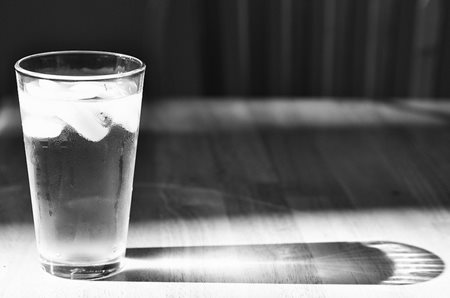With temperatures in the triple digits in some parts of the country, heat-related illnesses such as dehydration are more of a risk. What you may not know, however, is that being dehydrated while driving can be as dangerous as being drunk, according to a study published in the scientific journal Physiology and Behavior, featured in the Wall Street Journal.
Researchers at Loughborough University in England conducted simulated driving tests with participants that were both hydrated and dehydrated. The tests included two hours of driving on a simulator with various obstacles including bends, rumble strips, and slow-moving vehicles that needed to be passed. On the first day participants were given a full cup of water to drink per hour. Researchers counted 47 driving incidents on this day. On the next day of the study, participants were only given a few sips of water each hour and the number of driving incidents, including lane drifting and late braking, increased to 101.

Why did this happen? When we are dehydrated, our brain function becomes reserved. This can lead to a range of issues that impact mental clarity, reaction time, muscle function and even our mood. Dehydration also affects your blood volume causing headaches and dizziness.
Some drivers try not to consume much water on the road for fear that they will have to stop to use the restroom too frequently. But the symptoms caused by dehydration are too dangerous to ignore. Another mistake drivers make is blasting the A/C when they start to feel tired or sluggish. If you are feeling fatigued because you are dehydrated, the A/C will dehydrate you even more (removed “out).
Your body is considered dehydrated when it loses two percent of its weight in water. However, negative effects can start to occur after just a one percent loss. A sure way to tell if you are dehydrated is by the color of your urine. It should be mostly clear and if too yellow, it can indicate that you need more fluids. Traveling at higher elevations or extremely hot temperatures increases your chance of dehydration.
There is no magic number for how many ounces of water you need to drink in a day, but you should be drinking plenty of water before and during your long trips. Sports drinks that include electrolytes are also good if you become severely dehydrated.
Most importantly, don’t worry about taking breaks to use the restroom and fill up on water. It’s better to take a little extra time than to possibly put yourself and others in danger.
This article was originally featured on ATBSshow.com.
Image Source - https://www.flickr.com/photos/enidmartindale/